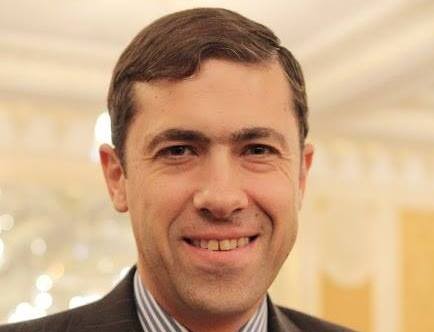Shai Franklin, CEO of Your Global Strategy and Senior Fellow, Institute on Religion and Public Policy.
In your opinion, what importance, if any, does the existence of a Jewish state have to you personally and to Jewish people in general?
“It is foundational to the current incarnation of Jewish identity.”
Do you feel committed in some way to defend the future existence of Israel?
“Much of my career has been predicated on that imperative, though in recent years it often seems only one partisan flavor of support is considered legitimate or productive — ironic, if one considers groupthink and complacency to be counter-productive.”
Do you affiliate yourself with a specific confessional division in Judaism? What is your view regarding the dominance of the Orthodox division in Israel religious establishment?
“Modern Orthodox, though it’s official brand is increasingly a source of shame and discomfort on many levels — from corruption to maximalist Zionism, and everything in between. The Orthodox dominance in Israel has doomed generations of otherwise receptive Israeli Jews and held back the potential for a truly universal Jewish polity.”
Do you feel morally responsible for Israel’s actions (such as its management of the Israeli-Palestinian conflict)?
“I feel morally responsible for doing my best to positively impact Israel’s soul, but I no longer blindly defend every single Israeli action. Israel is a real, sovereign country, and the last thing it needs is patronizing deference from American Jews.”
In your opinion, what is the main thing Israelis fail to understand about the reality of being Jewish outside of Israel?
“There’s an intellectual humility that derives from life in the Diaspora, and in Israel this is often perceived as naïveté or weakness. The notorious “galut” mentality is just as prevalent among proud Israelis as it is in the Diaspora; the difference is, at least we own it.”
How would you describe Israel’s policy (formally and in practice) regarding its relationship with the Diaspora?
“It is evolving, but ultimately, Israel is a sovereign state that’s responsible first to its own citizens. It will exploit all others wherever it feels the need or opportunity, be it Jonathan Pollard or anxious French Jews, or critics of President Obama. Another aspect: Just as U.S. Mideast policy is in no small part domestic in origins, so Israel’s foreign policy these days is significantly a product and lever of its own domestic politics.”
In your opinion, does Israel have an obligation to defend and help Jewish communities in need?
“It certainly claims that obligation as a right, while often disregarding it when suited. Its primary obligation will and should always be to its own citizens, however much it pretends otherwise.”
Have you ever been to Israel? if you have, can you summarize your impression from the Israeli reality?
“I have lived in Israel during different periods of my life, and I fit in seamlessly, and yet at my core I am and always will be an American in mentality.”
Can you tell us a bit about the Jewish community in your hometown? Is it organized? Are there community activities?
“It is diverse and unified, and yet segmented by geography, denomination, school, and camp. The prevailing assumption is that criticizing actions of right-wing Israelis is akin to criticism of Israel.”

